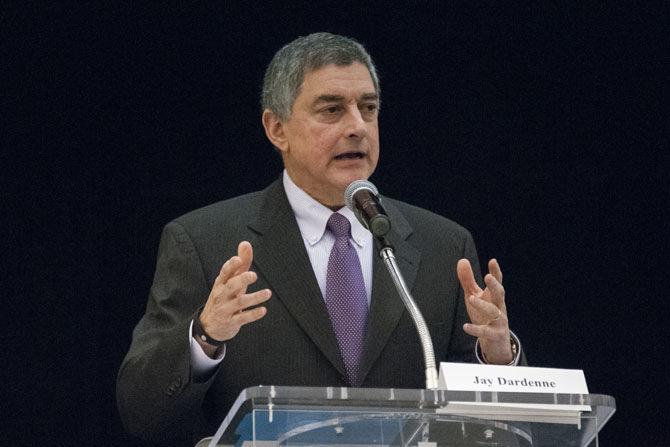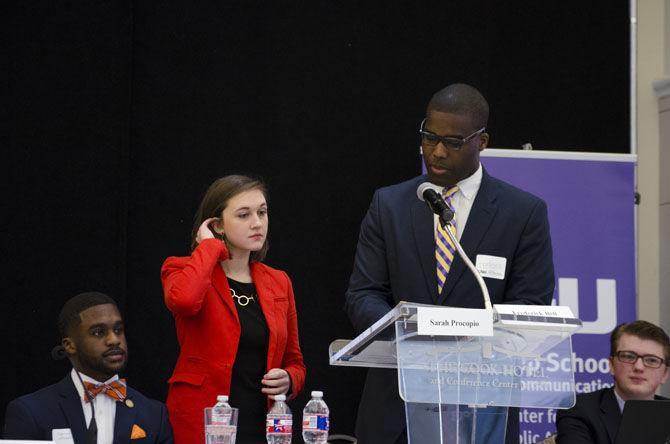Increasing concerns about Louisiana’s redistricting process and potential partisan gerrymandering have led groups like Fair Districts Louisiana to call on legislators to change the process in the next few years before 2021.
Fair Districts Louisiana and LSU’s Reilly Center for Media and Public Affairs hosted a bipartisan summit on Friday at the Lod Cook Alumni Center to discuss Louisiana’s current drawings of congressional and legislative districts and how they could be changed in 2021.
“The more we draw these districts in a manner that creates super majorities or over-majority/minority districts, more Republican districts, or limit Democratic districts, you’re going to have lack of competition for the seats,” said Louisiana Commissioner of Administration Jay Dardenne, who keynoted the event. “When there’s a lack of competition, you represent a narrower constituency.”
The redistricting process takes place every 10 years after the U.S. Census is completed. Louisiana’s current law dictates that state lawmakers draw the map.
Panels of legislators at the summit credited the redistricting process with being open and transparent to everyone, especially with the prevalence of technology.
“[The 2021 process] will probably be the most transparent redistricting process that our state has ever seen because of technology today,” said Sen. Ronnie Johns, R-Lake Charles.
Factors like geography, race, party and term limits make a difference, particularly for the upcoming redistricting process, Dardenne said. While he supported the idea of exposing early drafts of redistricting bills, he said he believes it will take an amendment to the state’s Constitution for the legislature to invest power in someone else to make decisions about the redistricting process.
Additionally, Dardenne expressed concern for a makeup of any sort of committee as there would be “heightened interests” at that time, such as who will be President of the Senate and who will be appointed Speaker of the House and what decisions each would make.
Twenty-one U.S. states use some form of a non-partisan or bipartisan commission to redistrict.
Rep. C. Denise Marcelle, D-Baton Rouge, said she expects more of a consensus now not to “pack districts,” which will result in a better representation throughout the state for the next redistricting process.
Dardenne emphasized the importance of compactness, contiguity, continuity and a community of interest when redistricting.
Speaker Pro Tem Walt Leger, D-New Orleans, suggested the possibility of a publicly-vetted process allowing citizens to view redistricting maps and make recommendations to the legislature for acceptable maps, as well as prohibit the legislature from amending those recommendations.
“I think the broader public engagement, not simply meetings and discussion, but some sort of real engagement is what can ultimately drive this meaningful change in this realm,” Leger said.
Dena Winegeart contributed to this report.









